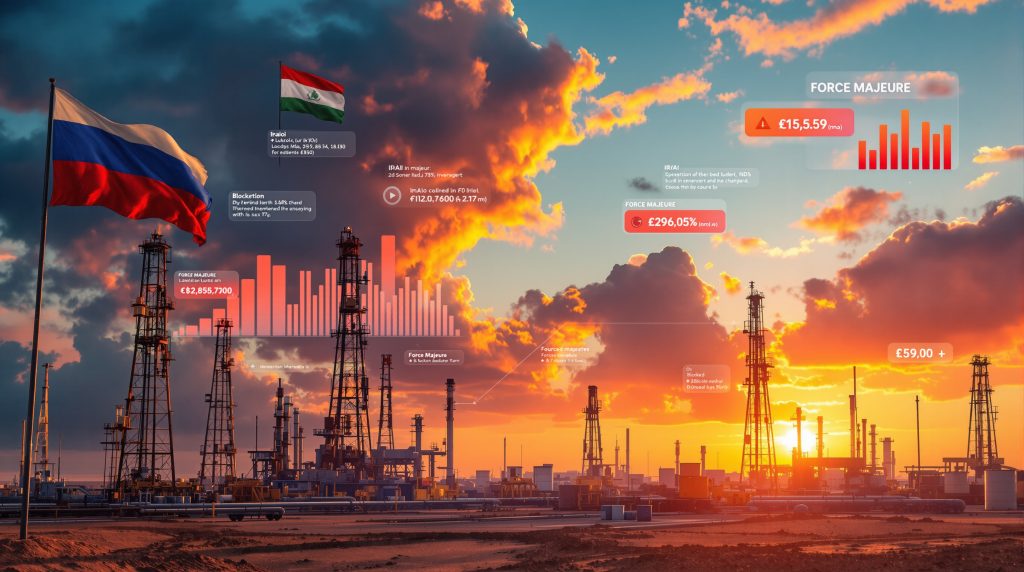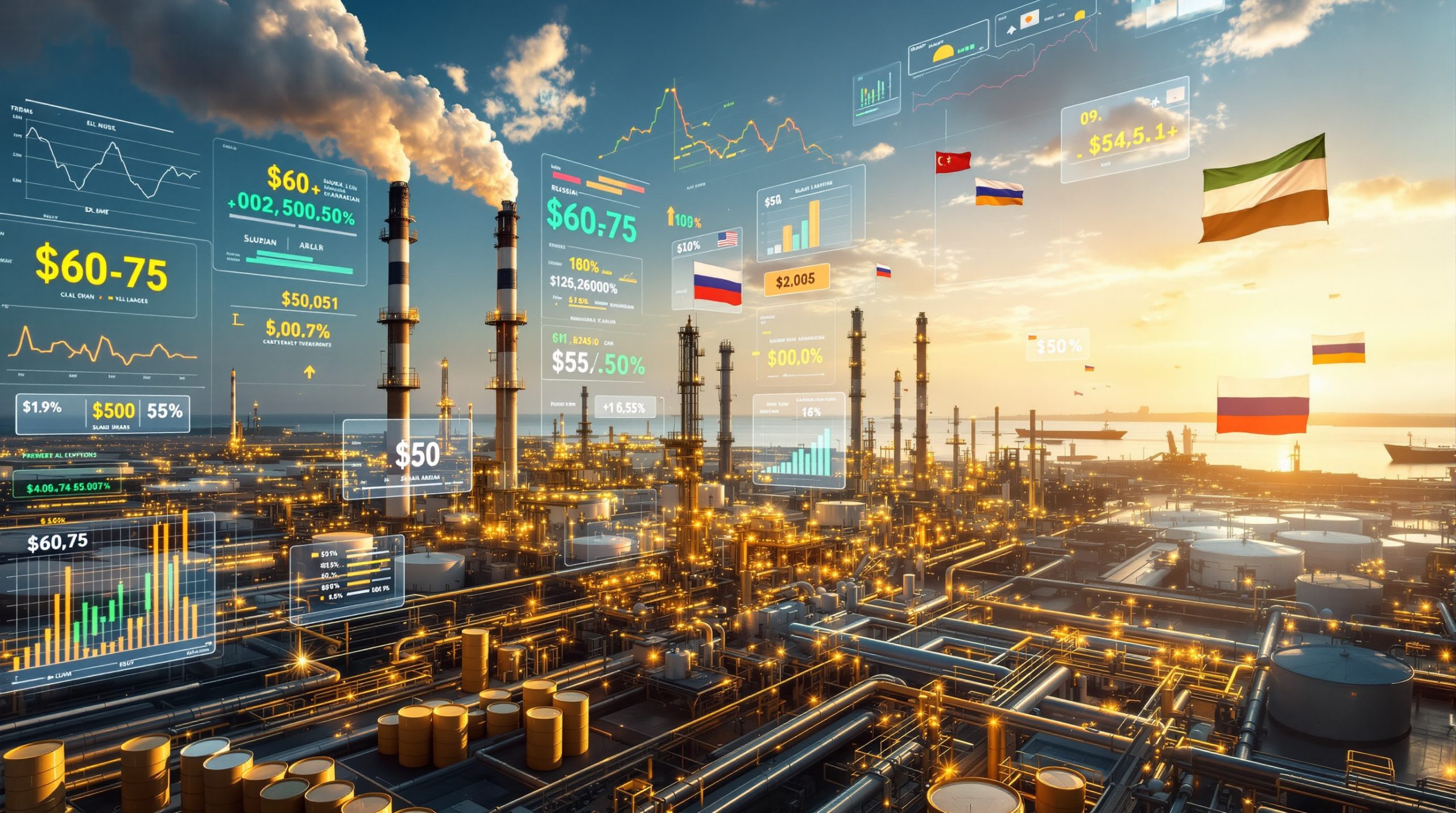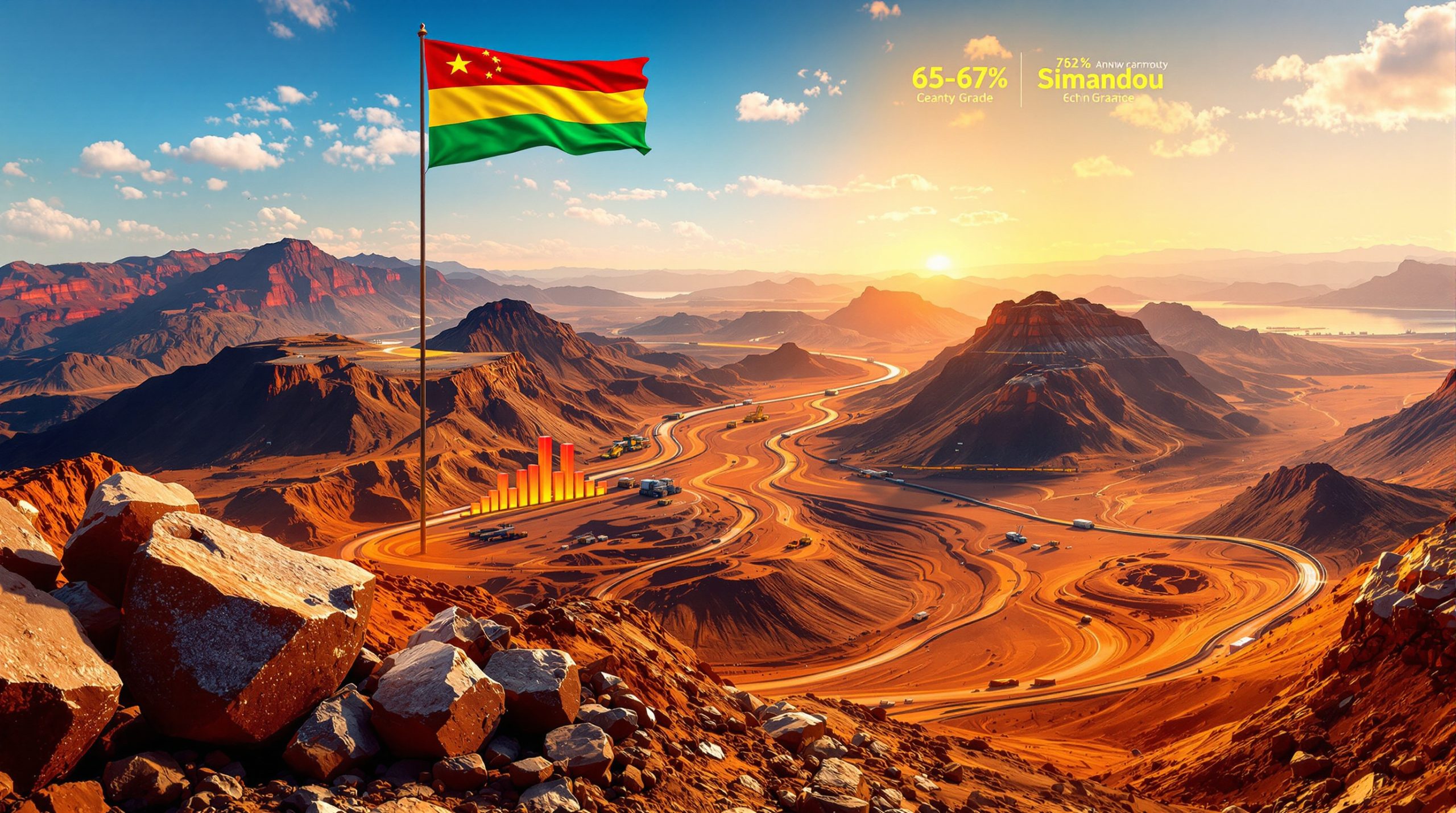Understanding Force Majeure in International Energy Contracts
Force majeure serves as a critical legal safeguard in international energy contracts, allowing parties to suspend obligations when extraordinary circumstances render performance impossible. This contractual mechanism has gained renewed attention following Lukoil declares force majeure at huge Iraqi oilfield after US sanctions targeting Russian energy operations globally.
The concept extends beyond simple contract suspension, representing a sophisticated risk management tool that energy companies employ when confronted with events genuinely beyond their control. These circumstances typically encompass natural disasters, wars, government actions, and in this case, international sanctions that fundamentally alter the operational landscape.
How U.S. Sanctions Transform Global Energy Operations
Immediate Operational Disruptions
The sanctions framework targeting Russian energy companies creates cascading effects that ripple through international operations with remarkable speed. At West Qurna-2, which produces approximately 480,000 barrels daily, representing nearly 9% of Iraq's total oil production, operations have effectively ground to a halt under the force majeure declaration.
This production halt demonstrates how modern sanctions go far beyond simple trade restrictions. They create operational impossibilities that force companies to invoke legal protections originally designed for natural disasters or wars. Furthermore, the scale of disruption becomes evident when considering that this single facility contributes nearly half a million barrels to global daily supply, highlighting the significant OPEC production impact on regional markets.
Financial Isolation Mechanisms
Iraq's government response illustrates how sanctions compliance extends far beyond direct enforcement actions. Baghdad has suspended all monetary transfers and crude oil deliveries to Lukoil, demonstrating the comprehensive nature of financial quarantine measures. This isolation prevents the Russian company from accessing contracted revenues or receiving oil shipments, effectively severing commercial relationships overnight.
The financial isolation operates through multiple layers:
• Banking restrictions that block fund transfers
• Insurance limitations affecting operational coverage
• Shipping constraints preventing cargo movements
• Payment processing blockades disrupting commercial transactions
Strategic Importance of West Qurna-2 in Global Oil Markets
Production Scale and Infrastructure
West Qurna-2 represents one of Iraq's most productive oilfields, contributing substantial volumes to international markets. The facility's strategic position in southern Iraq places it at the heart of the country's export infrastructure, with sophisticated pipeline connections and port facilities that enable efficient crude delivery to global customers.
The oilfield's geological characteristics contribute to its strategic value. Located in Iraq's super-giant oil province, the reservoir contains high-quality crude with favorable extraction economics. Moreover, production costs remain relatively low compared to unconventional resources, making the facility particularly valuable in current market conditions where oil price rally analysis becomes increasingly critical.
Economic Impact on Iraqi Government Finances
The potential shutdown creates significant revenue risks for Baghdad, which depends heavily on oil exports for government funding. Iraqi officials face a six-month window to resolve the situation before Lukoil may permanently exit the project, adding urgency to diplomatic efforts.
Iraq's fiscal dependence on oil revenues means that losing West Qurna-2's production would create substantial budgetary pressures. Consequently, the government must balance sanctions compliance with economic necessity, creating a complex political calculation that extends beyond simple commercial considerations.
Global Oil Trading Networks Under Sanctions Pressure
Market Avoidance Patterns
International oil traders are systematically avoiding Russian-linked crude cargoes to prevent secondary sanctions exposure. This risk-averse behaviour extends beyond direct Russian oil, encompassing any crude that might have Russian connections through joint ventures, service contracts, or operational partnerships.
The avoidance patterns create market inefficiencies that manifest as:
• Premium pricing for non-sanctioned barrels
• Increased transportation costs due to route changes
• Extended supply chains as buyers seek alternative sources
• Higher insurance costs for remaining Russian-linked transactions
In addition, these market disruptions contribute significantly to understanding oil price trade movements and their broader implications for global energy security.
Iran-Iraq Oil Blending Enforcement Actions
U.S. enforcement agencies simultaneously target sophisticated smuggling networks that blend Iranian crude with Iraqi oil to circumvent sanctions. Recent Treasury Department actions have designated multiple shipping companies and vessels involved in these operations, as reported by Reuters, demonstrating the interconnected nature of Middle Eastern oil trade.
| Enforcement Target | Action Type | Market Impact |
|---|---|---|
| Vessel Designations | Ship sanctions | Disrupted shipping routes |
| Trading Companies | Asset freezes | Blocked transactions |
| Blending Operations | Criminal charges | Deterred smuggling |
| Port Facilities | Enhanced monitoring | Increased compliance costs |
Geopolitical Implications for Regional Energy Security
Iraq's Diplomatic Balancing Challenge
Baghdad faces competing pressures from Western allies demanding strict sanctions compliance while attempting to maintain relationships with Russian energy partners. This delicate balance affects Iraq's ability to attract future foreign investment in its energy sector, as international companies reassess political risks.
The diplomatic challenge extends beyond immediate commercial relationships. Iraq must consider long-term energy development needs while navigating current geopolitical tensions. The country's oil reserves require substantial foreign investment for optimal development, making international relationships crucial for future growth and addressing energy security vulnerabilities in the region.
Russian Asset Divestment Complications
Lukoil's failed attempt to sell West Qurna-2 to Gunvor Group after U.S. Treasury opposition illustrates how sanctions complicate Russian companies' efforts to divest international assets. The Treasury Department's characterisation of potential buyers as facilitating Russian interests effectively blocks most sale opportunities.
This divestment challenge creates a trapped asset problem for Russian companies. They cannot operate facilities due to sanctions but also cannot sell them due to buyer restrictions, leaving valuable assets in operational limbo. Furthermore, this situation reflects broader trade war market effects that extend beyond traditional commercial relationships.
Regional Energy Security Vulnerabilities
The West Qurna-2 situation highlights broader vulnerabilities in Middle Eastern energy infrastructure when geopolitical tensions intersect with commercial operations. Similar scenarios could emerge at other Russian-operated facilities across the region, creating systemic risks for global energy security.
These vulnerabilities extend beyond Russian operations to encompass any international energy partnerships involving sanctioned entities. The precedent established at West Qurna-2 may influence how other countries approach similar situations.
Resolution Scenarios and Market Adaptation
Potential Exit Pathways
If diplomatic solutions fail within the six-month force majeure period, Lukoil faces permanent withdrawal from Iraq. This outcome would require Iraq to find replacement operators capable of maintaining production levels while managing complex infrastructure handovers.
The exit scenarios include:
- Negotiated transfer to non-sanctioned operators
- Government takeover of operations by Iraqi authorities
- Temporary suspension pending sanctions resolution
- Asset forfeiture under Iraqi legal frameworks
Alternative Operator Considerations
International oil companies may view West Qurna-2 as an attractive acquisition opportunity, though political risks and infrastructure handover complexities could deter some investors. The facility's proven reserves and existing infrastructure represent significant value for companies capable of managing transition risks.
Potential operators must evaluate several factors when considering this opportunity. However, as industry analysts note, "The combination of proven reserves, existing infrastructure, and favourable geology makes West Qurna-2 an attractive asset, but political risks and sanctions compliance requirements create substantial due diligence challenges for potential operators."
Market Adaptation Strategies
Global oil markets are already adjusting to potential supply disruptions by seeking alternative sources and building strategic reserves. This adaptation process may accelerate if more Russian-operated facilities face similar sanctions pressure, fundamentally reshaping international energy trade patterns.
Market participants are implementing several adaptation strategies:
• Diversifying supply sources to reduce dependence on politically vulnerable regions
• Increasing strategic reserves to buffer against sudden supply disruptions
• Developing alternative transportation routes to avoid sanctions-affected infrastructure
• Enhancing sanctions compliance systems to prevent inadvertent violations
Investment Risk Assessment Evolution
Political Risk Integration
International energy companies are reassessing political risk factors when evaluating investments in regions with complex geopolitical dynamics. The situation where Lukoil declares force majeure at huge Iraqi oilfield after US sanctions serves as a case study for how quickly operational environments can change, forcing companies to develop more sophisticated risk models.
Modern political risk assessment now incorporates:
• Sanctions probability modelling based on geopolitical tensions
• Secondary sanctions exposure analysis for joint venture partnerships
• Operational continuity planning for various political scenarios
• Asset stranding risk evaluation in volatile regions
Advanced Sanctions Compliance Systems
Energy companies are integrating more sophisticated sanctions monitoring systems into their operations to avoid inadvertent violations that could trigger secondary sanctions. These systems employ real-time screening of counterparties, automated transaction monitoring, and continuous regulatory updates.
The compliance evolution includes technological innovations such as blockchain-based supply chain tracking, artificial intelligence-powered risk assessment, and automated regulatory reporting systems. Consequently, these tools help companies navigate increasingly complex sanctions regimes whilst maintaining operational efficiency.
Supply Chain Diversification Imperatives
The crisis reinforces the importance of supply chain diversification for both companies and consuming nations to reduce dependence on politically vulnerable sources. This diversification extends beyond crude oil to encompass refining capacity, transportation infrastructure, and technology services.
In addition, the ongoing situation where Lukoil declares force majeure at huge Iraqi oilfield after US sanctions demonstrates how geopolitical events can rapidly disrupt established supply chains. Companies must therefore develop resilient operational frameworks that can adapt to changing circumstances.
Industry sources, including detailed analysis from Al-Monitor, continue to monitor these developments as they unfold.
Disclaimer: The information presented in this article is based on publicly available sources and current market conditions. Geopolitical situations and sanctions regimes can change rapidly, potentially affecting the accuracy of forward-looking statements. Readers should consult current official sources and qualified professionals before making investment or operational decisions based on this analysis.
Energy market participants seeking comprehensive coverage of global developments and policy changes can explore additional educational resources from established industry publications that provide ongoing analysis of sanctions impacts and market adaptation strategies.
Want to Capitalise on Global Energy Market Disruptions?
Discovery Alert's proprietary Discovery IQ model delivers real-time alerts on significant ASX mineral discoveries, helping investors navigate volatile market conditions and identify actionable opportunities in the resources sector. Start your 30-day free trial today to secure your market-leading advantage whilst global energy markets adapt to geopolitical challenges.




